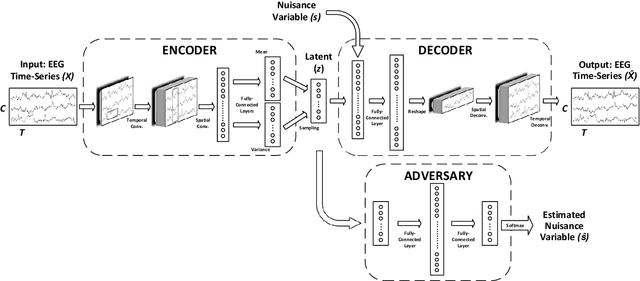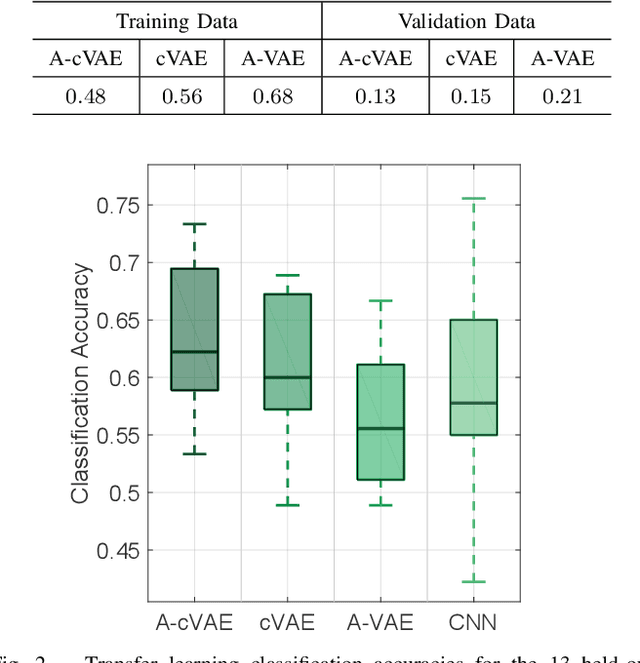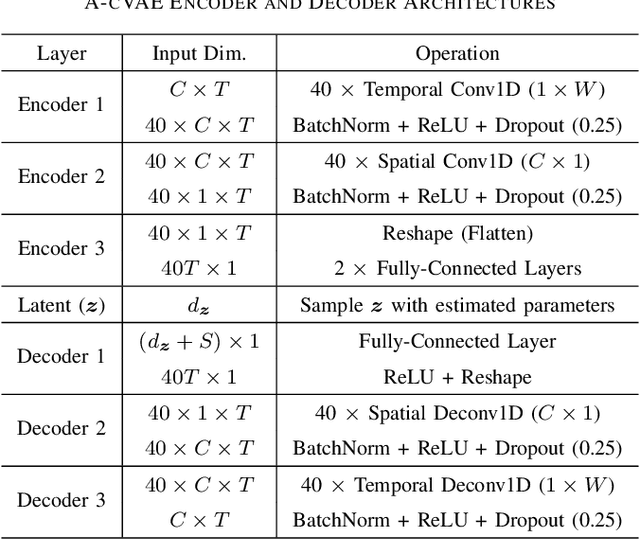Transfer Learning in Brain-Computer Interfaces with Adversarial Variational Autoencoders
Paper and Code
Dec 17, 2018


We introduce adversarial neural networks for representation learning as a novel approach to transfer learning in brain-computer interfaces (BCIs). The proposed approach aims to learn subject-invariant representations by simultaneously training a conditional variational autoencoder (cVAE) and an adversarial network. We use shallow convolutional architectures to realize the cVAE, and the learned encoder is transferred to extract subject-invariant features from unseen BCI users' data for decoding. We demonstrate a proof-of-concept of our approach based on analyses of electroencephalographic (EEG) data recorded during a motor imagery BCI experiment.
* 9th International IEEE EMBS Conference on Neural Engineering (NER'19)
 Add to Chrome
Add to Chrome Add to Firefox
Add to Firefox Add to Edge
Add to Edge